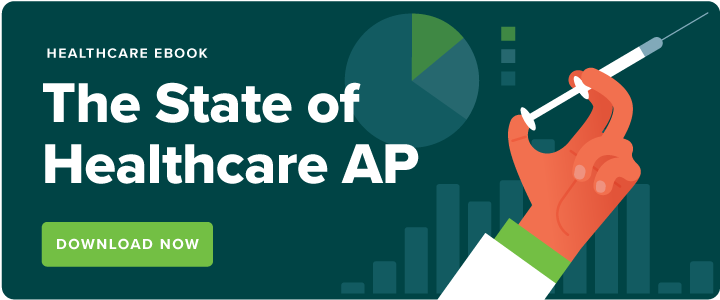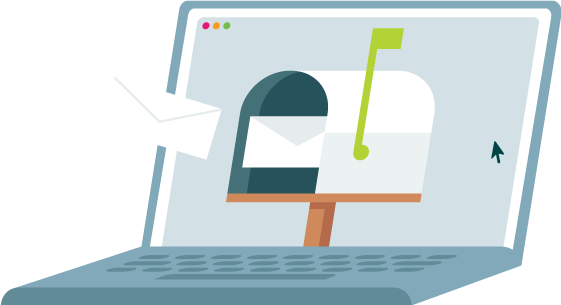Payment processing is a complicated component of any industry, but for healthcare professionals, it poses a particular challenge. In a sector where patients need to be protected both medically and personally, confidentiality is a top priority. Therefore, significant thought and consideration need to be put into the healthcare payment processing system your practice chooses. By doing so, you can ensure the protection of payments as well as the personal data shared through these transactions.
As the digital payments landscape continues to evolve with more options in the marketplace, many healthcare professionals feel overwhelmed by the unique challenges they face.
7 Payments Challenges for Medical Practices
While other industries are jumping on the opportunity to improve their payment processes, healthcare is one industry where the majority of organizations continue to rely on inefficient and paper-intensive systems. Below, we explore seven payment processing challenges specific to medical practices and how to overcome them.
1. Continued Reliance on Paper Checks and Manual Processes
Boosting operational efficiency is a constant challenge for those who work in healthcare and juggle a large volume of paperwork each day. In fact, according to the Medscape Physician Compensation Report 2018, nearly a third of physicians say they spend 20 hours or more a week on paperwork and the manual approval of invoices. Not only is this excess of paper wasteful for the environment, but the manual process of approving invoices is inefficient and a waste of time for healthcare professionals who want to maximize the time spent providing quality patient care.
The ideal healthcare accounting system for a medical practice is certainly not paper-based, it’s automated. With an automated system, payment approvers like doctors and nurses have access to easy-to-use approval tools that improve efficiency and reduce the likelihood of overdue payments. Even more importantly, it frees up space and allows healthcare workers to focus on what matters- providing optimum care.
2. Lack of Insight into Spend and Payment Trends
Another payment processing challenge for medical practices is using a system that has poor insight into spend and little to no use of analytics. The healthcare industry is becoming increasingly reliant on data to make fast and smart decisions. Data analytics is more critical than ever and it’s a huge advantage of accounts payable (AP) automation. By automating what was previously paper-based, finance teams benefit from 360-degree insight into the status of payments and can use in-platform analytics to make smarter AP decisions.
When choosing an AP system, consider its ability to easily integrate data into your existing ERP or accounting system. With integrated and automated AP, professionals can save time and money, and feel rest assured they’re not making careless mistakes when it comes to data entry.
Invoice processing, which has historically involved manually keying invoice data, chasing down signatures, and printing paper checks, can now be automated from start to finish with automated data capture and coding. Better yet, when businesses use MineralTree’s Invoice-to-Pay solution they can save 70% or more on payment processing costs.
3. Long Cycles Lead to Late Fees, Missed Discounts, and Strained Supplier Relationships
While many industries have jumped on electronic payments as their preferred payment solution, the healthcare industry continues to lag behind. When compared to those other industries, healthcare organizations disproportionately rely on paper checks to get the job done. In fact, BrightView Health reported that prior to implementing an automated AP process, 65-80% of their invoices were still paper-based. Additionally, data shows it can cost as much as $31 to manually process each invoice and cut paper checks.
Not only is the paper-based process tedious, error-prone, and expensive, but it elongates processing cycles, leading to late fees and missed discounts. There is also a missed opportunity to use an alternative payment method like virtual cards which allows you to earn cash back rebates for your purchases.
4. Poor PHI Protection & HIPAA Compliance
Medical practices also face the challenge of ensuring the protection of payment data through HIPAA compliance. Healthcare is one of the most highly regulated industries in the world, and it is essential that medical practices stay on top of ever-changing HIPAA requirements, or else face hefty fines and the loss of patient trust.
Consider the ramifications of unsuccessfully protecting one’s Protected Health Information (PHI) on an invoice. PHI includes information used to identify an individual and is often created, used, or disclosed over the course of providing a healthcare service like a diagnosis or treatment. Protecting this information is critical and having a manual process prone to human errors can jeopardize the reputation of your medical practice. On the other hand, if you’re looking to implement an automated AP system, HIPAA compliance should be at the top of your requirements to ensure that any PHI that appears on an invoice is safeguarded and protected.
5. High Fraud Risk
When you have to manage various payment methods with little to no security built in, it can make your company susceptible to outside influences and fraud. According to the 2024 AFP Payments Fraud & Control Survey, 80% of organizations reported incidents of payment fraud in 2023. One way to protect your payments from fraud is through an automated payment system that has built-in fraud protection technology like data and payment encryption capabilities. This helps to keep your practice’s financial records safe from outside threats as well as preserve supplier relationships.
6. Increased Number of E-Payment Options Result in a Fragmented Process
Something else complicating the healthcare landscape is the growing number of payment options available to choose from. Traditionally, medical practices have utilized their own balance sheets and negotiated their own terms with outside suppliers. Now, there are now a number of competing offerings in the marketplace including fintech partnerships, Automated Clearing House (ACH) payments, virtual card payment options, and more. Each of these options has pros and cons – one payment type does not fit all scenarios. Consider what your practice’s needs and priorities are and whether or not the system has the ability to support multiple payment methods without separate integrations and workflows.
While there may be a desire from your organization and suppliers to accept a wider range of payment methods, your organization may be hesitant to implement an entirely new system that requires the onboarding and training of staff. When looking to automate, look for an invoice-to-pay solution that easily integrates with your existing accounting system and leverages every payment method your business wishes to use. MineralTree’s unique solution has various payment options built into its AP automation platform, allowing you to work from a single workflow and automate payments across types.
7. Slow Adoption of Electronic Payments
Often your organization may have the desire to move to electronic payments, but your healthcare finance team simply lacks the capacity to contact vendors about accepting ePayments. If this is the case, it’s worth considering turning to supplier enrollment services offered by your AP automation vendor.
The Answer: Automated Payments
With so many healthcare payment processing challenges faced by medical practices like lack of data integration, slow adoption of electronic payments, and the need to maintain HIPAA compliance, the time has come to find a new solution. Enter AP automation.
Within MineralTree’s unique end-to-end accounts payable solution, payments can be automated and scheduled for approval on their due date, making it easier to manage cash flow, avoid duplicate payments, and even earn early-pay discounts. With the ability to easily integrate with your ERP, you can streamline your workflow without having to overhaul your entire accounting system. In a sector with so many challenges day-to-day, accounting doesn’t have to be one of them.




